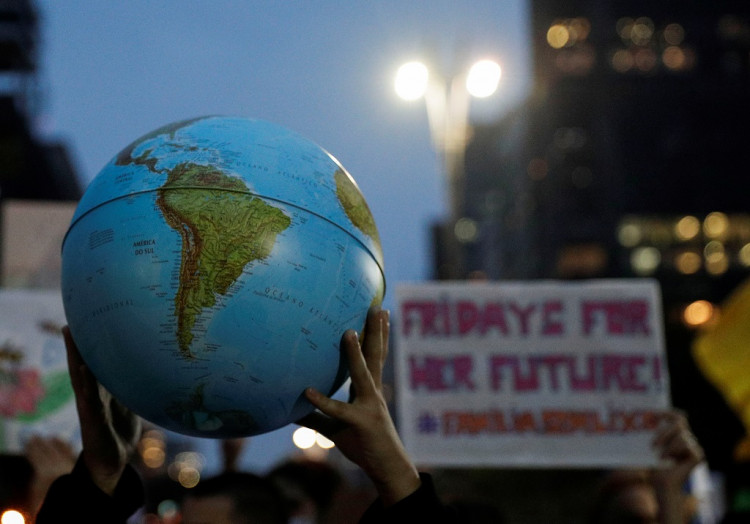Eleven months after the COVID-19 pandemic started, the Marshall Islands, a remote island territory in the Pacific archipelago, recorded its first two confirmed cases. Which islands across the Pacific remain coronavirus-free?
Palau
Palau has not reported a single case of COVID-19 since the pandemic started, putting it in the list of 10 remaining countries around the world with no coronavirus infections.
Anticipating the heavy economic impact of shutting down upon hearing news of the novel coronavirus, the Pacific island nation decided to isolate itself from the rest of the world.
The decision was made due to fears that its weak health system would be overwhelmed should the virus infiltrate communities. Borders were shut down in March in a bid to prevent travel-linked transmissions.
It remains to be seen whether the island nation will start pushing for tourism again under its new president following the presidential election Tuesday. Business owner Surangel Whipps is expected to win after his rival, Ray Oilouch conceded defeat Friday.
Samoa
Regarded as one of the toughest and most drastic lockdowns in the COVID-19 era, the American Samoa's decision to seal off its borders to the rest of the world appeared to be effective as the Pacific island nation remains free of the novel coronavirus.
However, hundreds of citizens of the American Samoa have yet to be allowed entry to the island as the government remains silent on when stranded residents can come home.
Around 50 families are stranded in Utah and many of them left Samoa for family events or medical reasons. They were supposed to fly back home but COVID-19 came around and the island banned entry for both residents and tourists.
Repatriation is a clear option and the American Samoan Government said it is currently in discussions to find a safe travel plan for those who have been stranded for months in the U.S.
Executive assistant to the Palau Governor and chairperson, 'Iulogologo Joseph M. Pereira said the government wants to make sure no "accidental transmission of the virus" takes place during the repatriation "given the close-knit society common to our people."
Tonga
Like other Pacific island nations and territories, Tonga has a weak health system, and there are fears that frontline medical workers may be the most at risk of potentially contracting COVID-19.
In mid-October, the United Nations Children's Fund (UNICEF), with funding from ADB and the World Health Organization (WHO), provided personal protective equipment (PPE) and medical equipment to help the small nation in its fight against the disease.
Tonga has yet to report a confirmed coronavirus case but the government said it will continue to prepare for potential cases in the future. It was among the Pacific island nations that shut down in late March.
Kiribati
As one of the remaining countries in the world with no COVID-19 infections, Kiribati continues to strengthen its chances against the disease.
Last month, the Kiribati minister for Health and Medical Services Dr. Tinte Itinteang, along with the U.S. ambassador to Fiji, Kiribati, Tuvalu, Nauru, and Tonga, Joseph Cella, officially launched a training program for medical technicians in the island nation.
The program focused on training doctors and medical workers in properly operating 10 ventilators donated by the White House. The goal was to help Kiribati retain its COVID-free status.
At the time of the training program's launch, Cella noted that the swift response and preparedness of Kiribati and other Pacific island nations helped keep the virus out of their territories.
Micronesia, Vanuatu, Nauru, and Tuvalu make up for the rest of the Pacific islands' coronavirus-free areas. The Marshall Islands and Solomon Islands left the list last month.






